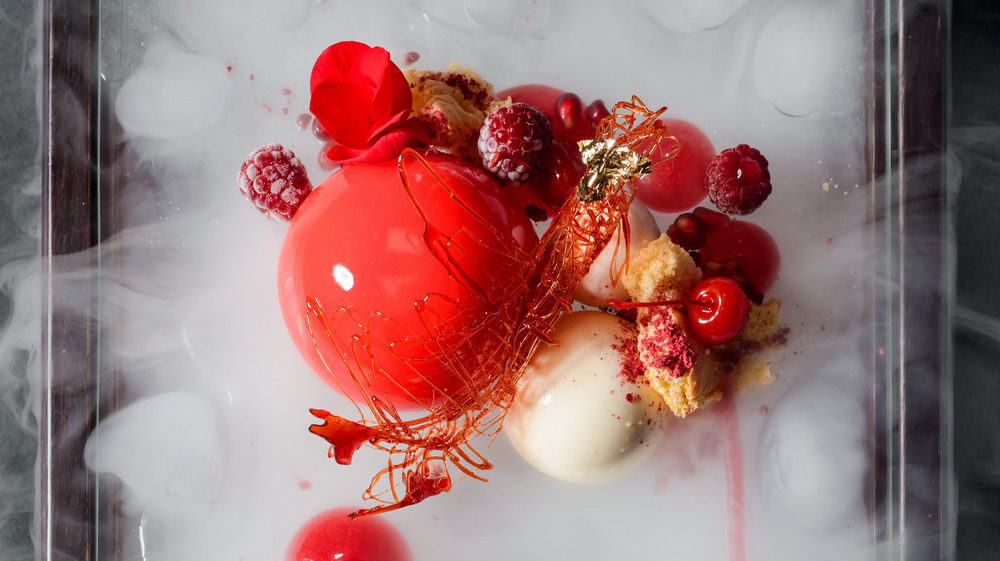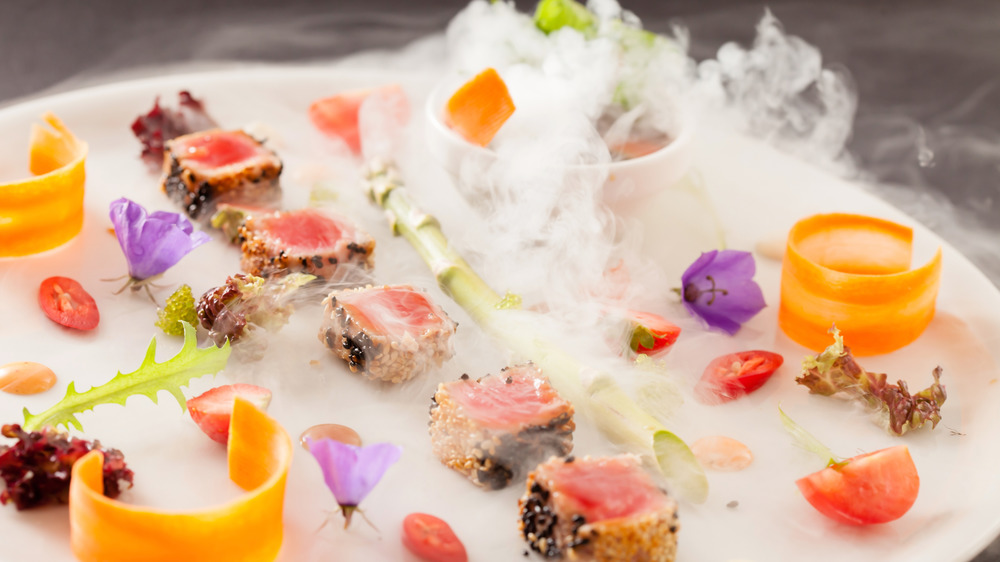What Is Molecular Gastronomy Really?
Images of chefs in lab coats pouring concoctions from one test tube to another while smoke billows around them might come to mind when you hear the term molecular gastronomy. Don't let the chefs hear you calling it that as many insist it gives the impression of something complicated and elitist, according to Heston Blumenthal, owner and chef of a three-starred Michelin restaurant (via Molecular Recipes). Whatever you want to call it one thing is certain, this isn't your grandmother's home cooking.
Although it fits under the broader category of food science, molecular gastronomy focuses on the interaction between art, culture, technology, and food (via Splice). Molecular cooking involves using specific ingredients (often chemicals from natural sources) along with the proper equipment to create an effect based on a chemical and physical interaction. Any time you cook food it is undergoing a reaction, such as a cake that rises or a hard-boiled egg that solidifies. However, the standout examples are what make molecular gastronomy so unique.
Deconstructed dishes, fruit caviar, flavored foam, and gel pasta are all part of this avant-garde style of cuisine, with most dishes resembling a cross between a science project and art. The results can be very impressive, have you ever tried a liquid olive or parmesan foam? While it might not be your choice for every day, this style of experimental cuisine is certainly entertaining and makes for a good show if you are dining out.
Who's doing molecular gastronomy?
There are a few modern-day players who focus on this style of cuisine; however, the origins of molecular gastronomy can be traced back to Nicolas Kurti and Herve This in 1988. In an interview with Engineering & Technology, Herve explained how he first started experimenting with traditional French cookbooks to test what he refers to as "culinary precisions." He also studied factors related to sensory perception and agreed that a multi-sensory approach is at the core of the avant-garde style of cuisine. While Herve rushed to distinguish between the study of molecular gastronomy and molecular cookery (actually making food), it's clear that some scientific understanding must precede the result (via Kitchen Theory).
In 2006, a group of Michelin-starred chefs, including Heston Blumenthal, presented an official statement about molecular gastronomy, refuting the idea that it was simply a trend (via The Guardian). Heston told The Guardian that their main goal was to create delicious food based on tradition and innovation, not dominated by technology. While precision and technique are undoubtedly at the heart of the food prepared by these chefs, it is still just food at the end of the day. Quality, creativity, and exciting flavors should be a goal for all chefs, whether they choose to use liquid nitrogen and gelling agents or not.

